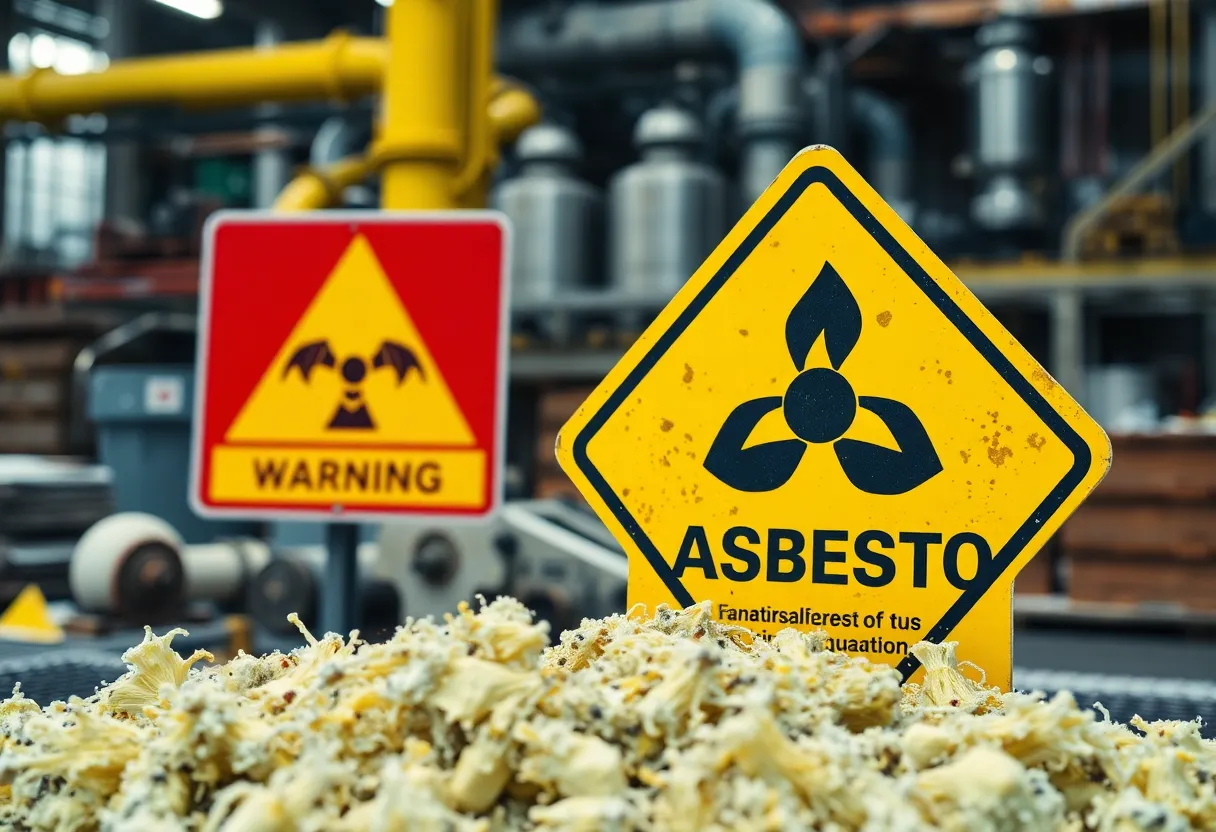News Summary
The Asbestos Dilemma: India’s Reckless Pursuit of a Deadly Mineral
Despite overwhelming *global health warnings* and an increasing number of countries enforcing bans, India remains committed to its high demand for asbestos, a substance linked to grave health risks such as lung cancer and mesothelioma. This insatiable appetite not only undermines international calls for safety but also raises serious questions regarding the cumulative health of the populace.
The Allure of Asbestos
Asbestos, consisting of heat-resistant fibrous silicate minerals, has been a favored material in industries like chemical refining, construction, and power generation due to its low cost and versatility. The material has been extensively utilized from the late 1800s until the early 2000s, leaving a grim legacy as a carcinogen. While over 70 countries have rightly banned its use, India sees no need to prohibit asbestos in construction.
Russia’s Role
A significant supplier, Russia remains the dominant exporter of asbestos to India, accounting for a staggering 85% of the country’s imports. This is particularly alarming as numerous nations have declared the mineral’s hazardous nature, making India an outlier on the global stage. In stark contrast, a report from November 2021 revealed that India imported a jaw-dropping 361,164 tonnes of asbestos between 2019 and 2020 alone.
Government Regulations and Health Risks
Despite earlier prohibitions on asbestos mining and the use of waste in shipyards back in 2011, the Indian government continues to condone the import and trade of raw asbestos products. An environmental lawyer highlights a troubling alliance between the Indian government and asbestos manufacturers, complicating efforts to enforce effective health regulations. Although the government admits there are risks associated with asbestos, the profitable nature of the industry continues to take precedence.
The Ominous Health Reality
Health experts assert that all types of asbestos lead to severe health issues, as outlined by the World Health Organization (WHO). The risks are also well-documented in medical literature dating back to 1924, emphasizing that *every exposure* to asbestos contributes to an ongoing disease epidemic. In India, however, the *trade of asbestos* takes precedence over human health, showcasing a disturbing trend fueled by commercial interests.
Questionable Studies and Conflict of Interest
A 2012 study funded by the Asbestos Cement Products Manufacturers’ Association claimed that asbestos does not pose health risks, raising serious concerns regarding conflicts of interest. Yet these claims stand at odds with the WHO’s stringent guidelines advocating against any use of asbestos, underlining a stark divide between *scientific opinion* and industry rhetoric.
Alternatives to Asbestos
Research suggests that effective alternatives to asbestos exist, typically at only slightly greater production costs. Nevertheless, the *asbestos industry* employs marketing strategies reminiscent of the tobacco sector, creating doubt about the established health risks associated with its usage. In a similar vein, the dual role of the Indian minister overseeing chemical production and health welfare raises further ethical concerns about potential regulatory failings.
The Future Implications
As India continues its oversight of asbestos importation and exportation, a potential public health crisis looms large on the horizon. Experts warn that unchecked exposure could result in a significant uptick in asbestos-related illnesses in the coming decades. Such circumstances emphasize the need for stringent monitoring of asbestos use in countries that allow it, including India, where regulatory actions remain alarmingly lax.
A collective global effort for a ban on asbestos could prevent further needless suffering and protect future generations from the deadly consequences of this toxic mineral. With the balance squarely tipped in favor of commercial interests, the real question now remains: how many more lives will be sacrificed in the name of profit?
Deeper Dive: News & Info About This Topic
HERE Resources
Asbestos Setbacks for Daytona Beach Property Purchase
Back in the Day: A Legendary Firefighter Super Bowl Tradition Blooms at Bergstrom Air Force Base
Crim Theater Gets Facelift Amid Asbestos Concerns
Unveiling the Dark Legacy of Asbestos in McLean County
As Legal Storms Brew Over Talc Products, New FDA Rules May Change the Landscape
Exciting Developments on the Horizon for Springfield Crossing
Le Mars City Council Faces Critical Asbestos Decision Ahead of Centennial Building Demolition
A Mammoth Legal Challenge Against Johnson & Johnson Over Talcum Powder as 3,500 Claimants Step Forward
Asbestos Traces Linger: The Long Shadow of 9/11 on Public Health
Rising Concerns Over Silicosis Compensation Claims in the UK



















